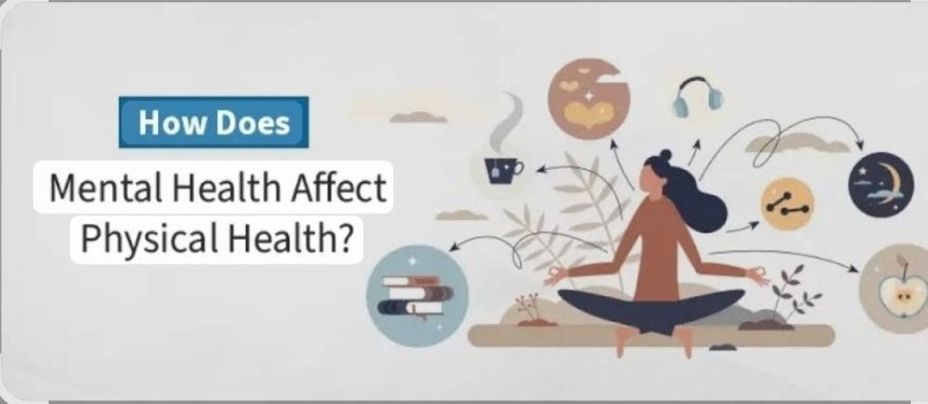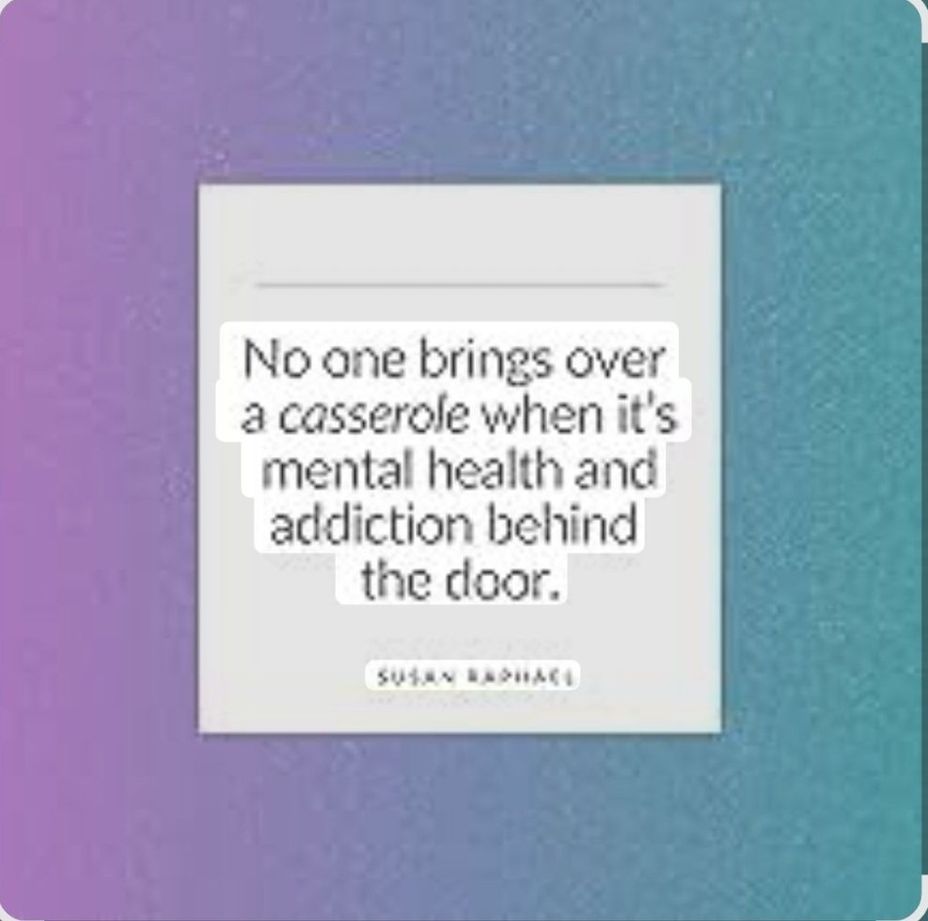How Mental Health Impacts Physical Health: A Canadian Perspective on the Mind–Body Connection By BigmommaJ
In Canada, mental health is increasingly recognized as a critical component of overall health—yet our systems, policies, and practices often continue to treat mental and physical health as separate domains. This separation does not reflect clinical reality.
Mental health directly influences physical health outcomes, including chronic disease, immune functioning, pain, and life expectancy. When mental health concerns are untreated or inadequately addressed, they frequently manifest as physical symptoms that place increased strain on individuals, families, and the healthcare system (Public Health Agency of Canada [PHAC], 2023).
Mental health is not ancillary care.
It is foundational to health.
Mental Health as a Determinant of Health
In Canada, mental health is recognized as both a health outcome and a social determinant of health, shaped by factors such as early childhood experiences, income security, housing stability, access to services, and exposure to violence or discrimination (PHAC, 2023).
The Canadian Mental Health Association (CMHA) defines mental health as the capacity to feel, think, and act in ways that enhance one’s ability to enjoy life and deal with challenges.
When this capacity is compromised, the physiological stress response becomes chronically activated, increasing the risk of illness (CMHA, 2023).
Mental distress is not simply psychological—it is neurobiological
Chronic Stress, Allostatic Load, and Physical Health
From a clinical standpoint, prolonged psychological stress contributes to allostatic load—the cumulative wear and tear on the body’s systems due to repeated or chronic stress exposure (McEwen & Akil, 2020).
In Canadian populations, chronic stress has been associated with:
*Hypertension and ischemic heart disease
*Type 2 diabetes
*Autoimmune and inflammatory conditions
*Gastrointestinal disorders
*Chronic pain syndromes
*Sleep-wake disturbances
Individuals with histories of childhood maltreatment, involvement in child welfare systems, intimate partner violence, or systemic trauma experience disproportionately higher allostatic load, contributing to long-term health inequities (PHAC, 2023; Felitti et al., 1998).
From a trauma-informed lens, these outcomes reflect adaptive survival responses, not pathology.
Depression, Anxiety, and Chronic Disease
Mood and anxiety disorders are among the most prevalent mental health conditions in Canada and are strongly associated with chronic physical illness. Clinical evidence demonstrates that individuals living with depression are at increased risk for cardiovascular disease, metabolic disorders, and poorer post-illness recovery outcomes (Mental Health Commission of Canada [MHCC], 2022).
Anxiety disorders are frequently associated with:
*Functional gastrointestinal disorders
*Chronic respiratory symptoms
*Somatic symptom presentations
*Heightened pain perception
Within primary care, these conditions often present as physical complaints, underscoring the importance of integrated mental health screening and collaborative care models (MHCC, 2022).
Trauma, the Nervous System, and Somatic Health
Trauma is increasingly understood in Canadian clinical practice as a neurophysiological injury, affecting how the nervous system regulates safety, threat, and connection. Trauma exposure—particularly in childhood—alters stress response systems and increases the risk of long-term physical illness (SAMHSA, 2014; PHAC, 2023).
The Adverse Childhood Experiences (ACE) study, frequently referenced in Canadian public health frameworks, demonstrates a strong dose-response relationship between early trauma and adult health conditions, including heart disease, cancer, and chronic lung disease (Felitti et al., 1998).
Trauma-informed care emphasizes that:
Physical symptoms may represent the body’s communication of unresolved stress and threat.
This perspective is particularly relevant in child welfare, corrections, addiction services, and community mental health settings.
Mental Health, Substance Use, and Physical Health
In Canada, substance use is increasingly approached through a health-based and harm-reduction lens, recognizing its strong association with mental health conditions and trauma exposure (Canadian Centre on Substance Use and Addiction [CCSA], 2022).
Substance use impacts physical health through:
*Cardiovascular and hepatic disease
*Neurological impairment
*Nutritional deficiencies
*Immune suppression
Concurrent mental health and substance use disorders require integrated, concurrent-capable care, a standard emphasized in Canadian clinical guidelines (CCSA, 2022).
Punitive or abstinence-only approaches fail to address the underlying drivers of both mental and physical health deterioration.
Stigma as a Barrier to Health Care
Despite progress, stigma remains a significant barrier within Canadian healthcare systems. Individuals with mental health diagnoses report higher rates of symptom dismissal, diagnostic overshadowing, and reduced quality of care for physical health concerns (MHCC, 2022).
Stigma contributes to:
*Delayed help-seeking
*Increased emergency department utilization
*Lower treatment adherence
Worsened health outcomes
Reducing stigma is a clinical intervention—not a public relations strategy.
Personal Reflection
Across my work and lived experience, I have seen how unresolved trauma and chronic stress live in the body—showing up as pain, fatigue, and illness long before words feel accessible.
Healing did not begin with symptom elimination.
It began with understanding.
When we stop framing physical symptoms as failures and start recognizing them as adaptations, compassion becomes clinically relevant.
Toward Integrated, Trauma-Informed Care
Canadian health frameworks increasingly emphasize:
*Integrated primary and mental health care
*Trauma- and violence-informed practice
*Culturally responsive and equity-oriented services
*Recognition of lived experience as expertise
Mental health care is preventive health care. Addressing psychological distress reduces long-term system burden and improves quality of life.
Call to Action
If you are navigating physical health challenges alongside mental distress, your experience is valid and deserving of care.
If you work within healthcare, social services, or child welfare, consider what the nervous system may be responding to—not just what symptoms are visible.
If you are healing, know this: supporting your mental health is supporting your physical survival.
We rise above our norm when we treat health as whole, interconnected, and human.
BigmommaJ
#MentalHealth #physicalhealth #wellbeing





